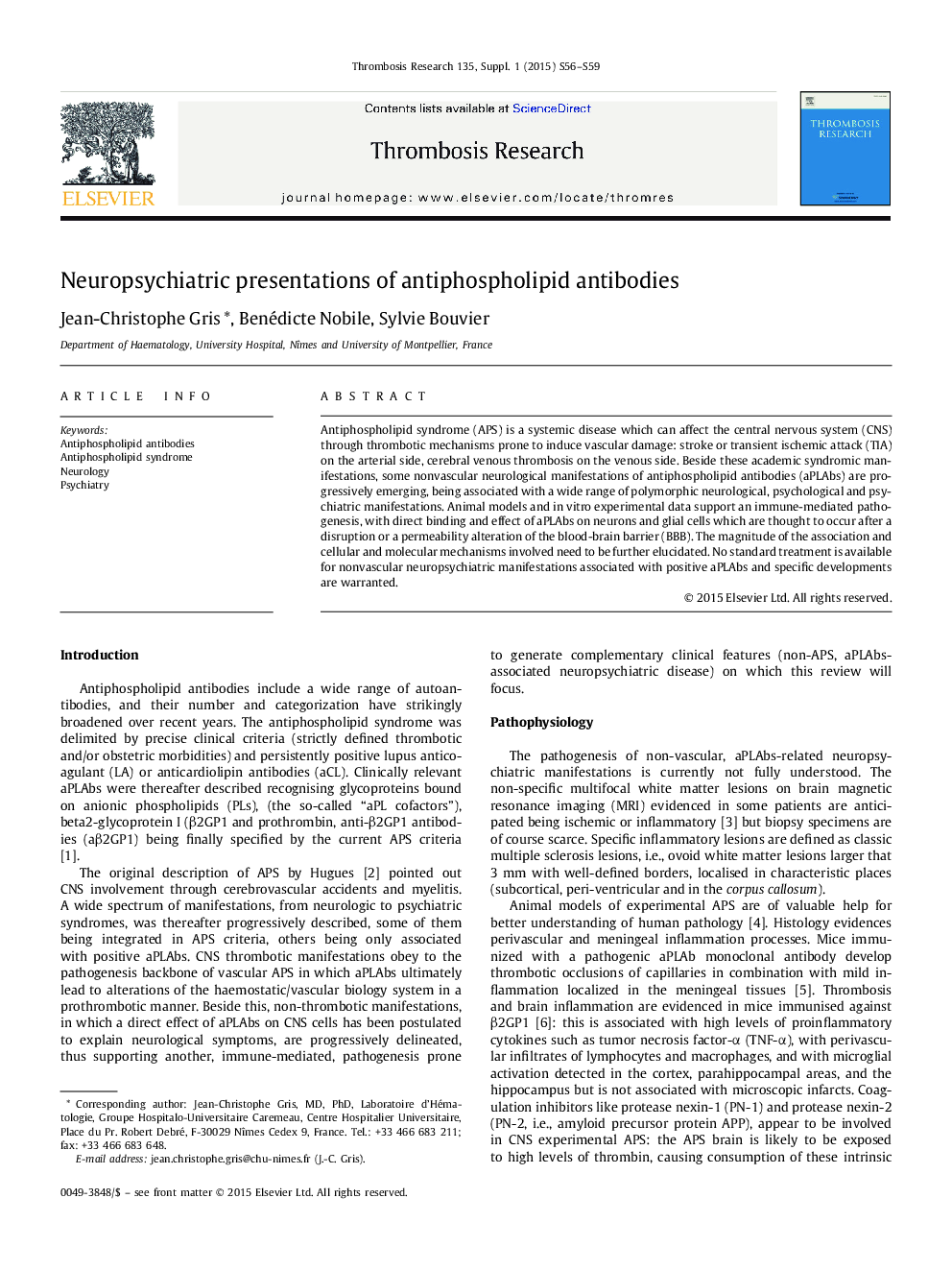| Article ID | Journal | Published Year | Pages | File Type |
|---|---|---|---|---|
| 3027405 | Thrombosis Research | 2015 | 4 Pages |
ABSTRACTAntiphospholipid syndrome (APS) is a systemic disease which can affect the central nervous system (CNS) through thrombotic mechanisms prone to induce vascular damage: stroke or transient ischemic attack (TIA) on the arterial side, cerebral venous thrombosis on the venous side. Beside these academic syndromic manifestations, some nonvascular neurological manifestations of antiphospholipid antibodies (aPLAbs) are progressively emerging, being associated with a wide range of polymorphic neurological, psychological and psychiatric manifestations. Animal models and in vitro experimental data support an immune-mediated pathogenesis, with direct binding and effect of aPLAbs on neurons and glial cells which are thought to occur after a disruption or a permeability alteration of the blood-brain barrier (BBB). The magnitude of the association and cellular and molecular mechanisms involved need to be further elucidated. No standard treatment is available for nonvascular neuropsychiatric manifestations associated with positive aPLAbs and specific developments are warranted.
